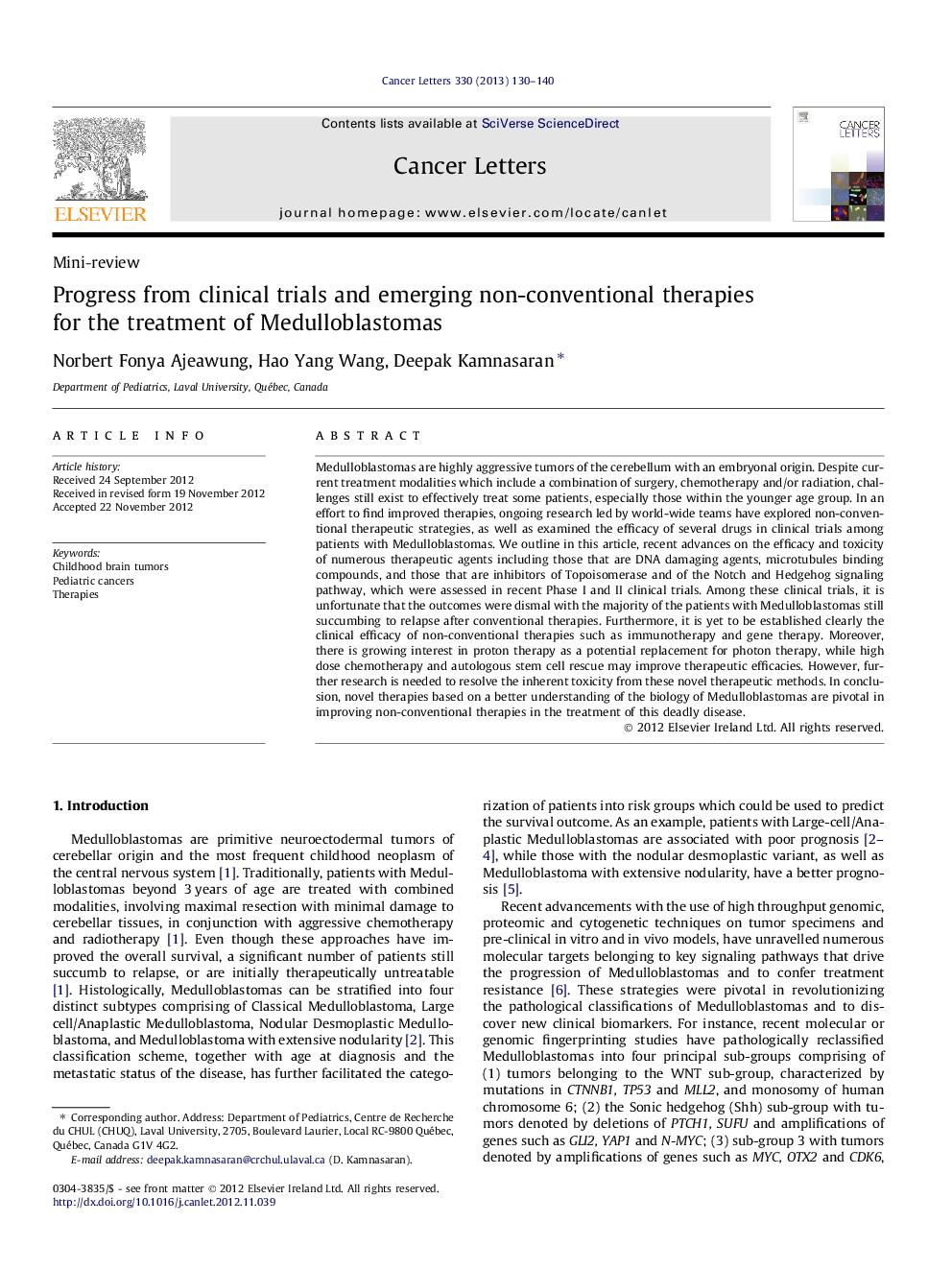| Article ID | Journal | Published Year | Pages | File Type |
|---|---|---|---|---|
| 2113083 | Cancer Letters | 2013 | 11 Pages |
Medulloblastomas are highly aggressive tumors of the cerebellum with an embryonal origin. Despite current treatment modalities which include a combination of surgery, chemotherapy and/or radiation, challenges still exist to effectively treat some patients, especially those within the younger age group. In an effort to find improved therapies, ongoing research led by world-wide teams have explored non-conventional therapeutic strategies, as well as examined the efficacy of several drugs in clinical trials among patients with Medulloblastomas. We outline in this article, recent advances on the efficacy and toxicity of numerous therapeutic agents including those that are DNA damaging agents, microtubules binding compounds, and those that are inhibitors of Topoisomerase and of the Notch and Hedgehog signaling pathway, which were assessed in recent Phase I and II clinical trials. Among these clinical trials, it is unfortunate that the outcomes were dismal with the majority of the patients with Medulloblastomas still succumbing to relapse after conventional therapies. Furthermore, it is yet to be established clearly the clinical efficacy of non-conventional therapies such as immunotherapy and gene therapy. Moreover, there is growing interest in proton therapy as a potential replacement for photon therapy, while high dose chemotherapy and autologous stem cell rescue may improve therapeutic efficacies. However, further research is needed to resolve the inherent toxicity from these novel therapeutic methods. In conclusion, novel therapies based on a better understanding of the biology of Medulloblastomas are pivotal in improving non-conventional therapies in the treatment of this deadly disease.
► New therapies will benefit most younger patients and/or those with refractory or recurrent medulloblastomas. ► Clinical trials show modest results from new experimental drugs and non-conventional therapies. ► Combined adjuvant methods will be the best approach for treating medulloblastomas.
